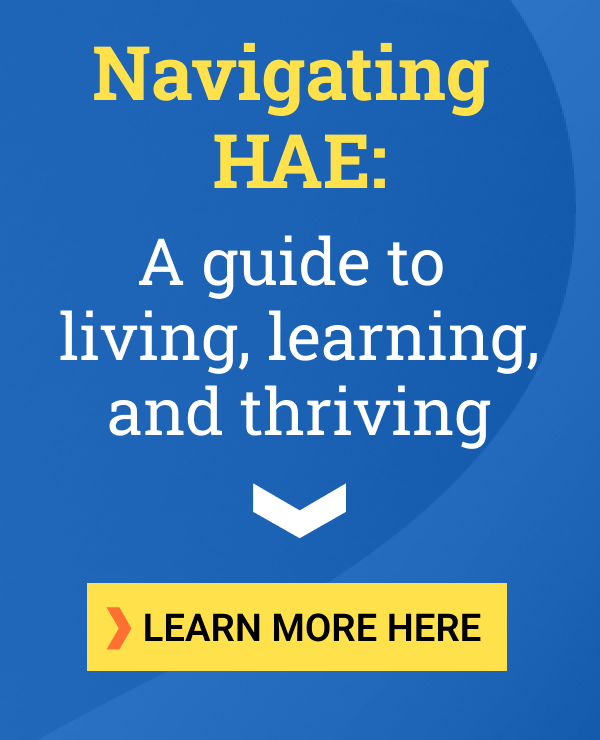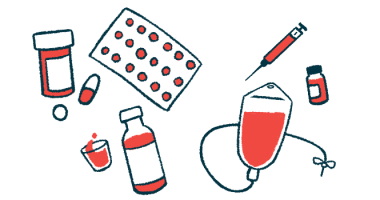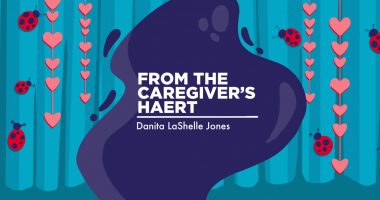The isolation that comes with being among the rarest of the rare
How we're learning to find our way with our daughter's HAE type 3

Mosquito bites. That’s what my mom discovered on my back right before I started experiencing a life-threatening allergic reaction.
The previous day, my parents, sister, and I spent a humid July evening planting 50 bushes to line the back of our property. This labor of love took us well past sunset, but afterward, we had a perfect row of seedlings, as well as clothes covered in Alabama’s signature red dirt.
Unfortunately, red dirt wasn’t the only souvenir I carried into the house.
After my parents rushed 6-year-old me to the pediatrician’s office, where I was quickly administered a shot of what I now know was epinephrine and an oral dose of Periactin (cyproheptadine), the doctor leaned against the wall.
“I can’t believe mosquitoes did this,” he said. “She’s clearly allergic. I don’t think I’ve ever seen a case like this before.”
Years later, one night when an outdoor wedding sent me to the emergency room, I shared my frustration with the doctor on call.
“Nobody else I know has this kind of reaction to mosquitoes!” I lamented.
“It’s very rare,” she replied. “I’ve only seen it a few times in my career.”
Oddly, her statement made me feel better. Although I’d never met anyone like me, I loved the idea that I wasn’t the only one.
Admittedly, it’s a fun conversation piece. I have too many war stories about trips to the ER before acquiring an EpiPen. But the truth is that this rare allergy used to make me feel isolated.
I spent most of my life layering myself in bug repellent on warm days, rushing indoors at dusk, and explaining to people who didn’t understand why I turned down outdoor gatherings after dark. Do I know others who are allergic to bees or develop an itchy bump or two after a mosquito bite? Sure. But I’ve never met anyone with my specific allergy.
It’s a microcosm of what our daughter faces daily.
Of the HAE types, by far the rarest
Usually, when I write about our daughter, whom we lovingly call Ladybug, and her hereditary angioedema (HAE), I bring up anecdotes about her diagnosis or her Berinert (human C1 esterase inhibitor) medication, as well as some of the daily challenges we face when caring for someone with a rare disease.
However, when I recently reviewed many of my columns, I realized that I don’t usually discuss how Ladybug has the rarest form of this disease: HAE type 3, or HAE with a normal C-1 esterase inhibitor, described by the U.S. Food and Drug Administration as occurring “very rarely, [and] is poorly understood.” Explaining to Ladybug that she had this disease felt like a colossal task; explaining that she’s part of the tiniest percentage of HAE patients seemed to add a greater burden.
And like any parent, I’d love to hug her and tell her that being in such a small category “makes her special” or “unique” or other words that hint that “being different” is awesome. But the truth is, the smaller the percentage, the lonelier she may feel. She’s often been one of a kind, even in a room with her fellow HAE peers.
I’m still figuring out how to handle this, as we’re still navigating this area of her diagnosis. I do know that as she gets older, there may be times she feels singled out. But I hope this leads Ladybug to find others like her as she continues this journey. Hopefully, if she knows that somebody out there is exactly like her, it’ll help her realize that she’s never alone.
Note: Angioedema News is strictly a news and information website about the disease. It does not provide medical advice, diagnosis, or treatment. This content is not intended to be a substitute for professional medical advice, diagnosis, or treatment. Always seek the advice of your physician or other qualified health provider with any questions you may have regarding a medical condition. Never disregard professional medical advice or delay in seeking it because of something you have read on this website. The opinions expressed in this column are not those of Angioedema News or its parent company, Bionews, and are intended to spark discussion about issues pertaining to angioedema.









Comments
Wendy Jenkins
I am like your daughter except I'm 46. It's frustrating at times because Dr don't always know how to treat us. Please give your a baby a hug from me, and let her know she is not alone. I am a mother to two beautiful adults and hae hasn't kept me from living.
Danita LaShelle Jones
You give me great joy and hope! Thank you!
Tim Franklin
Hello Danita, thank you for sharing and enlightening the world about such a rare condition. I have been following your articles and truly appreciate the honest reality of the condition your beautiful daughter Ladybug is afflicted. My wife (54) was diagnosed with HAE Type 3 about 2 years ago that affects her oral pharyngeal and throat area. She has had it her entire life however the severity of her condition didn't brew until about 2 years ago. I felt the need to share, with my wife's permission, as it does feel we are so alone in treatment. Her most recent attack this weekend landed her in the trauma unit minutes from intubation (she has been intubated twice). It only spurs us to share and search for more answers. The care we receive at the hospital is outstanding however the care Team looks to us as what course is best to follow. The challenge of lack of preventative medications available just incourages us to keep trying harder to seek answers. Thank you again Danita for sharing. As a father of 4 girls, I cannot begin to imagine what you go through daily with Ladybug however I do absolutely believe your sharing path will help others. Ladybug, you are not alone. (Feel free to contact us personally if you have time).
Danita LaShelle Jones
Tim! I champion you and your wife. Most people don't understand how difficult of a journey this is and how scary it can be. I hope you all find the necessary therapies your wife needs to help with her flares. In the meantime, if you haven't already, reach out to HAEA (haea.org) they're amazing when it comes to resources, suggestions, and if nothing else, just the emotional support for both you and your wife.